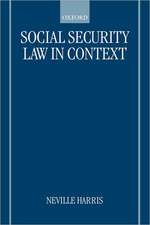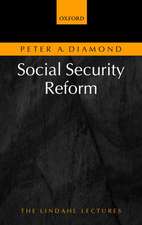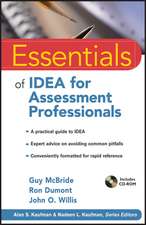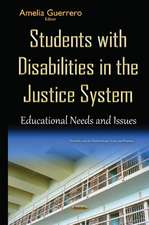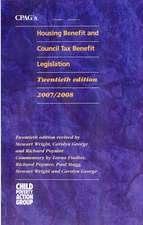Education Governance for the Twenty-First Century: Overcoming the Structural Barriers to School Reform
Editat de Paul Manna, Patrick McGuinnen Limba Engleză Paperback – 18 ian 2013
America's fragmented, decentralized, politicized, and bureaucratic system of education governance is a major impediment to school reform. In this important new book, a number of leading education scholars, analysts, and practitioners show that understanding the impact of specific policy changes in areas such as standards, testing, teachers, or school choice requires careful analysis of the broader governing arrangements that influence their content, implementation, and impact.
Education Governance for the Twenty-First Century comprehensively assesses the strengths and weaknesses of what remains of the old in education governance, scrutinizes how traditional governance forms are changing, and suggests how governing arrangements might be further altered to produce better educational outcomes for children.
Paul Manna, Patrick McGuinn, and their colleagues provide the analysis and alternatives that will inform attempts to adapt nineteenth and twentieth century governance structures to the new demands and opportunities of today.
Contents:
Education Governance in America: Who Leads When Everyone Is in Charge?, Patrick McGuinn and Paul Manna
The Failures of U.S. Education Governance Today, Chester E. Finn Jr. and Michael J. Petrilli
How Current Education Governance Distorts Financial Decisionmaking, Marguerite Roza
Governance Challenges to Innovators within the System, Michelle R. Davis
Governance Challenges to Innovators outside the System, Steven F. Wilson
Rethinking District Governance, Frederick M. Hess and Olivia M. Meeks
Interstate Governance of Standards and Testing, Kathryn A. McDermott
Education Governance in Performance-Based Federalism, Kenneth K. Wong
The Rise of Education Executives in the White House, State House, and Mayor's Office, Jeffrey R. Henig
English Perspectives on Education Governance and Delivery, Michael Barber
Education Governance in Canada and the United States, Sandra Vergari
Education Governance in Comparative Perspective, Michael Mintrom and Richard Walley
Governance Lessons from the Health Care and Environment Sectors, Barry G. Rabe
Toward a Coherent and Fair Funding System, Cynthia G. Brown
Picturing a Different Governance Structure for Public Education, Paul T. Hill
From Theory to Results in Governance Reform, Kenneth J. Meier
The Tall Task of Education Governance Reform, Paul Manna and Patrick McGuinn
Education Governance for the Twenty-First Century comprehensively assesses the strengths and weaknesses of what remains of the old in education governance, scrutinizes how traditional governance forms are changing, and suggests how governing arrangements might be further altered to produce better educational outcomes for children.
Paul Manna, Patrick McGuinn, and their colleagues provide the analysis and alternatives that will inform attempts to adapt nineteenth and twentieth century governance structures to the new demands and opportunities of today.
Contents:
Education Governance in America: Who Leads When Everyone Is in Charge?, Patrick McGuinn and Paul Manna
The Failures of U.S. Education Governance Today, Chester E. Finn Jr. and Michael J. Petrilli
How Current Education Governance Distorts Financial Decisionmaking, Marguerite Roza
Governance Challenges to Innovators within the System, Michelle R. Davis
Governance Challenges to Innovators outside the System, Steven F. Wilson
Rethinking District Governance, Frederick M. Hess and Olivia M. Meeks
Interstate Governance of Standards and Testing, Kathryn A. McDermott
Education Governance in Performance-Based Federalism, Kenneth K. Wong
The Rise of Education Executives in the White House, State House, and Mayor's Office, Jeffrey R. Henig
English Perspectives on Education Governance and Delivery, Michael Barber
Education Governance in Canada and the United States, Sandra Vergari
Education Governance in Comparative Perspective, Michael Mintrom and Richard Walley
Governance Lessons from the Health Care and Environment Sectors, Barry G. Rabe
Toward a Coherent and Fair Funding System, Cynthia G. Brown
Picturing a Different Governance Structure for Public Education, Paul T. Hill
From Theory to Results in Governance Reform, Kenneth J. Meier
The Tall Task of Education Governance Reform, Paul Manna and Patrick McGuinn
Preț: 313.73 lei
Nou
Puncte Express: 471
Preț estimativ în valută:
60.03€ • 65.47$ • 50.62£
60.03€ • 65.47$ • 50.62£
Carte tipărită la comandă
Livrare economică 24 aprilie-08 mai
Preluare comenzi: 021 569.72.76
Specificații
ISBN-13: 9780815723943
ISBN-10: 0815723946
Pagini: 424
Ilustrații: black & white tables, figures
Dimensiuni: 152 x 229 x 34 mm
Greutate: 0.61 kg
Editura: Brookings Institution Press
Colecția Brookings Institution Press
ISBN-10: 0815723946
Pagini: 424
Ilustrații: black & white tables, figures
Dimensiuni: 152 x 229 x 34 mm
Greutate: 0.61 kg
Editura: Brookings Institution Press
Colecția Brookings Institution Press
Notă biografică
Paul Manna is associate professor in the Department of Government and the Thomas Jefferson Program in Public Policy at the College of William & Mary. Patrick McGuinn is associate professor of political science and education at Drew University.
Descriere
A Brookings Institution Press with the Thomas B. Fordham Institute and the Center for American Progress publication
America's fragmented, decentralized, politicized, and bureaucratic system of education governance is a major impediment to school reform. In this important new book, a number of leading education scholars, analysts, and practitioners show that understanding the impact of specific policy changes in areas such as standards, testing, teachers, or school choice requires careful analysis of the broader governing arrangements that influence their content, implementation, and impact.
Education Governance for the Twenty-First Century comprehensively assesses the strengths and weaknesses of what remains of the old in education governance, scrutinizes how traditional governance forms are changing, and suggests how governing arrangements might be further altered to produce better educational outcomes for children.
Paul Manna, Patrick McGuinn, and their colleagues provide the analysis and alternatives
that will inform attempts to adapt nineteenth and twentieth century governance structures to the new demands and opportunities of today.
Contents:
Education Governance in America: Who Leads When Everyone Is in Charge?,
Patrick McGuinn and Paul Manna
The Failures of U.S. Education Governance Today,
Chester E. Finn Jr. and Michael J. Petrilli
How Current Education Governance Distorts Financial Decisionmaking,
Marguerite Roza
Governance Challenges to Innovators within the System,
Michelle R. Davis
Governance Challenges to Innovators outside the System,
Steven F. Wilson
Rethinking District Governance,
Frederick M. Hess and Olivia M. Meeks
Interstate Governance of Standards and Testing,
Kathryn A. McDermott
Education Governance in Performance-Based Federalism,
Kenneth K. Wong
The Rise of Education Executives in the White House, State House, and Mayor’s Office,
Jeffrey R. Henig
English Perspectives on Education Governance and Delivery,
Michael Barber
Education Governance in Canada and the United States,
Sandra Vergari
Education Governance in Comparative Perspective,
Michael Mintrom and Richard Walley
Governance Lessons from the Health Care and Environment Sectors,
Barry G. Rabe
Toward a Coherent and Fair Funding System,
Cynthia G. Brown
Picturing a Different Governance Structure for Public Education,
Paul T. Hill
From Theory to Results in Governance Reform,
Kenneth J. Meier
The Tall Task of Education Governance Reform,
Paul Manna and Patrick McGuinn
America's fragmented, decentralized, politicized, and bureaucratic system of education governance is a major impediment to school reform. In this important new book, a number of leading education scholars, analysts, and practitioners show that understanding the impact of specific policy changes in areas such as standards, testing, teachers, or school choice requires careful analysis of the broader governing arrangements that influence their content, implementation, and impact.
Education Governance for the Twenty-First Century comprehensively assesses the strengths and weaknesses of what remains of the old in education governance, scrutinizes how traditional governance forms are changing, and suggests how governing arrangements might be further altered to produce better educational outcomes for children.
Paul Manna, Patrick McGuinn, and their colleagues provide the analysis and alternatives
that will inform attempts to adapt nineteenth and twentieth century governance structures to the new demands and opportunities of today.
Contents:
Education Governance in America: Who Leads When Everyone Is in Charge?,
Patrick McGuinn and Paul Manna
The Failures of U.S. Education Governance Today,
Chester E. Finn Jr. and Michael J. Petrilli
How Current Education Governance Distorts Financial Decisionmaking,
Marguerite Roza
Governance Challenges to Innovators within the System,
Michelle R. Davis
Governance Challenges to Innovators outside the System,
Steven F. Wilson
Rethinking District Governance,
Frederick M. Hess and Olivia M. Meeks
Interstate Governance of Standards and Testing,
Kathryn A. McDermott
Education Governance in Performance-Based Federalism,
Kenneth K. Wong
The Rise of Education Executives in the White House, State House, and Mayor’s Office,
Jeffrey R. Henig
English Perspectives on Education Governance and Delivery,
Michael Barber
Education Governance in Canada and the United States,
Sandra Vergari
Education Governance in Comparative Perspective,
Michael Mintrom and Richard Walley
Governance Lessons from the Health Care and Environment Sectors,
Barry G. Rabe
Toward a Coherent and Fair Funding System,
Cynthia G. Brown
Picturing a Different Governance Structure for Public Education,
Paul T. Hill
From Theory to Results in Governance Reform,
Kenneth J. Meier
The Tall Task of Education Governance Reform,
Paul Manna and Patrick McGuinn



